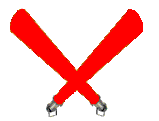
Lighting Designer
Visual Dynamic Range Expansion
John_Schlick@eXotic-Lighting.com (206) 932-6622

|
John Schlick Lighting Designer Visual Dynamic Range Expansion John_Schlick@eXotic-Lighting.com (206) 932-6622 |
Home Photos Resume Articles Rental Equipment Miscellaneous Feedback Links


It becomes obvious at a certain point that a band needs a “full crew” – for example if you suddenly start selling out coliseums worldwide… But, when and how should bands at the club and small theatre level invest their money? And since this article is geared at those musicians reading it, this means how do YOU invest your money in crew when you do shows?
This article is geared specifically at evaluating the position of Lighting Designer or LD. In this piece, I’m going to answer the question: How do you select a Lighting Designer?
So you have decided the time has come to hire an LD. What’s really important when it comes to selecting a Lighting Designer?
Let me digress and tell you a quick “Bob” story, (and this is why I used the name Bob in another article). I was in a club acting as the lighting designer for one of my local Seattle clients, and we were on just before the main headliner. I got there early and did a focus for my band. Bob came in and was the lighting guy for the main act, it turns out that Bob was a friend of one of the band members, and they felt that he had to “do something” to get him in the door on the crew list. The whole band was thrilled Bob was going to be doing their lights. After all, he knew all the songs. My band was a 4 piece band, meaning that I had three band members across the front of the stage, and Bob’s band was a 3 piece, which had 2 members across the front of the stage. I had very specifically focused the front lights for my three people. When Bob walked up at the end of our set, I told him… “You realize that the front lights aren’t going to hit your people where they are setting up, you’d better do a focus for your guys”. Bob grunted, and proceeded to go look for his pitcher of beer.
When his guys took the stage, predictably, the front two bandmenbers stood in-between where I had focused the lights for my guys, and you couldn’t see the front two players, not with every light in the house on. It was no wonder then, at the end of the night, my guys came up to me and told me they were getting comments from EVERYONE that we had blown the headliner just flat out OFF the stage.
My point with this little aside is that there are flavors of lighting guys. First, when you talk about choosing to pay money to someone, you must pick someone that brings something to the table. Bob brought something to the table. He was friends with the band. But what did he bring to the performance of the band onstage?
When you set out to hire a lighting guy, find out if they’ve done it for a while. Experience doesn’t necessarily mean they are good, and inexperience doesn’t necessarily mean they are bad, but if you hire someone that’s been touring at or near your level for a while, they will at least know what that world looks like.
Find out if they have any theatrical experience. This is not necessarily an indicator that they are good or bad, but it shows the depth of their craft. If they have theatrical experience, they are more likely to think of the entire stage as a composition, as opposed to just thinking of backlights as flashy things.
Find out if they understand the technical side of the equipment they are running. (It’s like asking a guitar player the difference between a Fender Twin and a Mesa Boogie. I personally haven’t a clue what the difference in sound is, but I know it’s there.) If you have a lighting designer that doesn’t know a Leko throws a different texture of light from a Par 64, then you have a problem.
Honestly, the best way to hire a lighting designer is to do two things… First: Look at some of their work, see pictures in a portfolio, go to a show they are working, or have them do a trial show for you (I do a lot of that when touring people come thru Seattle), and Second: Just talk to them. See what their philosophy is, see if it matches what you are looking for. Tell them how you see yourself onstage, and then let them translate that into light and see if you click.
Once you have someone that’s going to do a show for you, a good way to evaluate things these days is to video tape a show, and then dissect it afterwards. This lets the band see what the audience sees, because it’s nearly impossible to see what’s really going on during the show. If you get someone that won’t work with you to make you feel good about what’s happening visually onstage during a show, DON’T hire them. My take is that people are paying to see you, and if you aren’t comfortable onstage, you can’t give your best performance, so hire someone that will work both for, and with you, to present you properly.
John Schlick is a full time LD who lives in Seattle when he is not touring. His website is http://eXotic-Lighting.Com, and you can contact him at John_Schlick@eXotic-Lighting.com with any questions about the lighting business (or to hire him).
